With the European Award for Iranian Studies the Societas Iranologica Europaea recognizes outstanding theses in any field of Iranian Studies defended at European universities. The award is given every four years.
Call for Applications for the Sixth Round of the SIE Award in Iranian Studies (2027)
The Societas Iranologica Europea invites applications for the Sixth Round of the “European Award of Iranian Studies”.
Eligibility
To be eligible, candidates must have completed and successfully defended their Ph.D. (or equivalent) dissertation in any field of Iranian Studies at any European academic institution between 1 January 2023 and 31 December 2027. The thesis can be published or unpublished.
The prize will be awarded at the Eleventh European Conference of Iranian Studies that shall take place in 2027. The amount of the award is 2000 €.
Award Committee
The members of the selection committee are the members of the board of the Societas Iranologica Europaea. The board reserves the right to invite the views of external adjudicators.
Application
Candidates send a copy of their dissertation in their original language together with evidence for the successful completion (with defense) of the Ph.D. or equivalent degree, a detailed summary of its contents in English, and curriculum vitae to the President of the S.I.E.
Nominations by supervisors are welcome, but not conditional. The award committee reserves the right to request additional materials from candidates and/or supervisors.
All documents must be sent electronically as pdf files to president@societasiranologicaeu.org
The deadline for submissions is 15 January 2027.
Award Winners 2023
In 2023 the prize was divided between Valentina Bruccoleri and Federico Dragoni.
***
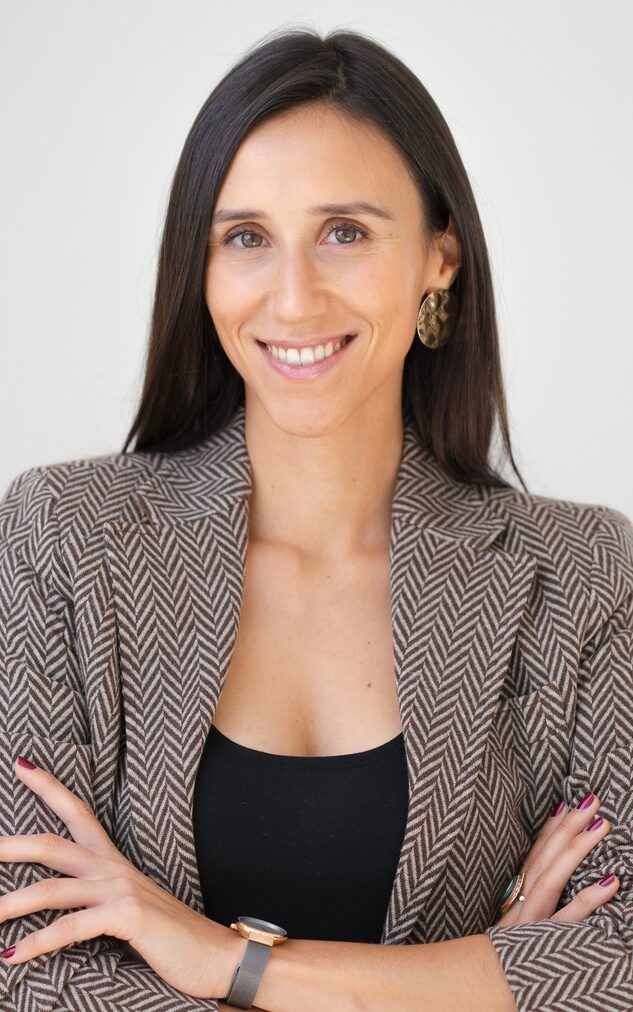
Valentina Bruccoleri
“Céramique chinoise (1271-1435) et monde iranien: Production, diffusion, reception” (Sorbonne Université, Paris 2021)
Valentina Bruccoleri is a postdoctoral researcher in art history and archaeology at Ca’ Foscari University, Venice. Her research explores Sino-Islamic interactions in late medieval and early modern periods through art and material culture.
She lived in China during high school, where she learned Mandarin. After a BA in Chinese Studies (Ca’ Foscari) and an internship at the Palace Museum in Taipei, she specialised with an MA in Chinese art (Sorbonne, Paris) and then with a PhD on Sino-Iranian artistic interactions. In parallel, she studied Persian language and civilisation at INALCO in Paris. She worked at the National Museum of Asian Art – Guimet and joined the French-Uzbek archaeological mission of the Louvre Museum in Bukhara in 2019 and 2021 as a ceramic specialist. She has taught Chinese and Islamic art at the École du Louvre and lectured at Ca’ Foscari University, Sorbonne University and the Institut Catholique de Paris. Her PhD thesis (Sorbonne, 2021) was also awarded the Solemn Prize “Jean Royère” of the Chancellerie des Universités de Paris and the Prize of the French Association of Chinese Studies (AFEC).
***
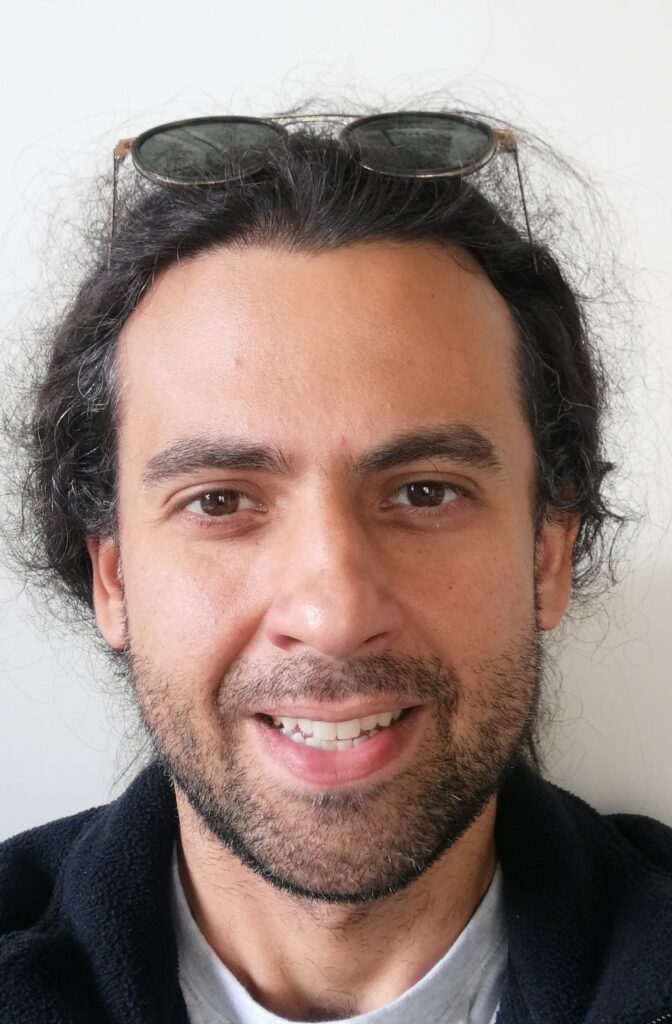
Federico Dragoni
“Watañi lāntaṃ. Khotanese and Tumshuqese Loanwords in Tocharian” (Universiteit Leiden 2022)
Federico Dragoni was born in Milan in 1992. After an MA in Clarinet (Conservatory G. Verdi, Milan), he turns to Iranian Studies (BA Sapienza University of Rome, MA Freie Universität Berlin). In 2022 he obtains a PhD in Linguistics from Leiden University as part of the NWO-funded project «Tracking the Tocharians from Europe to China: a linguistic reconstruction» led by Prof. M. Peyrot. He is currently employed at the Leiden University Centre for Linguistics as a postdoctoral researcher specializing in Iranian and Central Asian languages and cultures. In addition to the SIE Award for best dissertation in Iranian Studies, his PhD dissertation has also received the First Prize for best dissertation of the year 2022 of the Society for Indo-European Studies. A revised version of his dissertation has been published as a monograph in the series Beiträge zur Iranistik (Reichert) and is available Open Access at https://medialibrary.reichert-verlag.de/en/9783752002430_watani_lantam/.
Award Winner and Honourable Mention 2019
In 2019 the Societas Iranologica Europaea presented the Award to Viola Allegranzi and an Honourable Mention to Philip Bockholt.
***
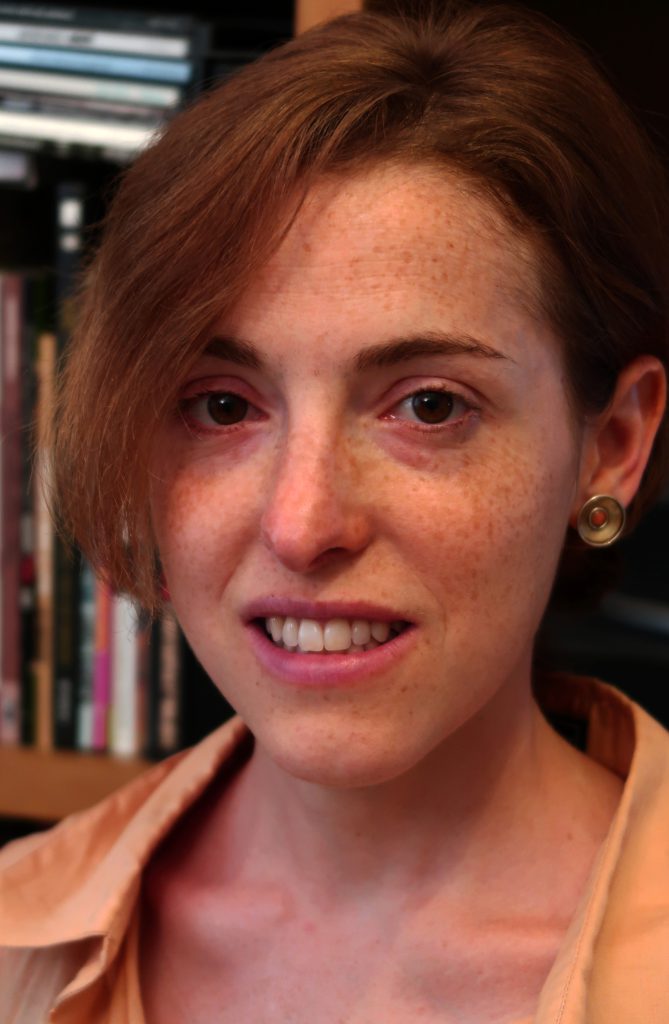
Viola Allegranzi
“Les inscriptions persanes de Ghazni, Afghanistan: Nouvelles sources pour l’étude de l’histoire culturelle et de la tradition épigraphique ghaznavides (Ve-VIe/XIe-XIIe siècles)” (Sorbonne Nouvelle Université Paris 3 and University of Naples “L’Orientale” 2017)
Viola Allegranzi is a specialist of the cultural history of medieval Iran and Central Asia, and of Islamic Epigraphy. Her research interests pivot on the artistic and literary expression of princely culture, and on the epigraphic use of Persian. She is an associate postdoctoral fellow at the CNRS, Mondes Iranien et Indien (FRE 2018, Paris) and a member of the Islamic Ghazni Archaeological project (University of Naples “L’Orientale”, Gerda Henkel Stiftung). After having obtained undergraduate and graduate degrees in Islamic and Iranian Studies at the University of Naples “L’Orientale”, she prepared a joint Ph.D. at the University Sorbonne Nouvelle – Paris 3 and “L’Orientale”. In 2017, she defended a dissertation presenting the analysis of a largely unpublished corpus of Persian inscriptions retrieved from Ghazni (Afghanistan), which includes some of the earliest textual evidence of New Persian poetry. A revised version of her thesis has been published in 2019: Aux sources de la poésie ghaznavide. Les inscriptions persanes de Ghazni (Afghanistan, XIe-XIIe siècle), Presses Sorbonne Nouvelle, Paris. Moreover, she published several journal articles and proceedings on topics related to Arabic and Persian epigraphy, Islamic art and archaeology, historical topography.
***
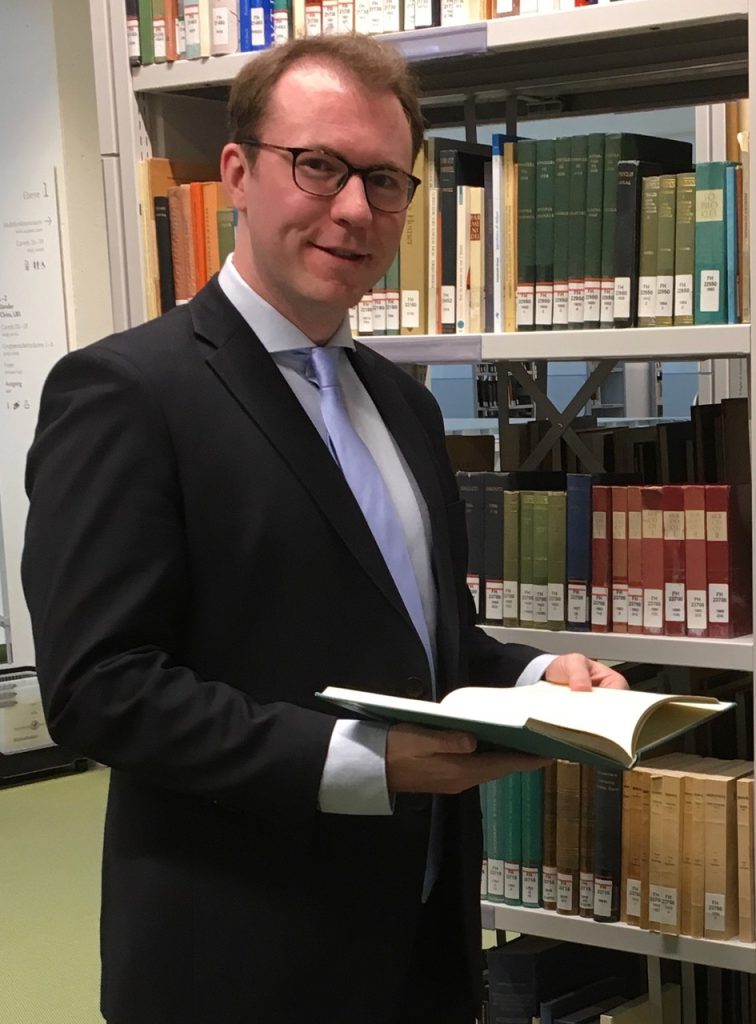
Philip Bockholt
“Weltgeschichtsschreibung zwischen Schia und Sunna. Ḫvandamirs (gest. 1535/6) Ḥabib as-siyar und seine Rezeption im Handschriftenzeitalter” (Freie Universität Berlin 2018)
Philip Bockholt studied History and Islamic Studies in Germany (Bochum, Münster, and Berlin) and the Middle East (Jerusalem, Cairo, Istanbul, and Tehran). He received his PhD in Islamic Studies from Freie Universität Berlin in 2018. Afterwards, research fellowships led him to Saint Petersburg, Madrid, and Jerusalem. In October 2018, he joined the Leipzig University Institute of Oriental Studies. Currently, he is working on a project on translations from Arabic and Persian into Ottoman Turkish.
In his doctoral dissertation, Philip Bockholt explored one of the major historiographical narratives of the Persianate world, the general history Ḥabib al-siyar fi akhbar afrad al-bashar (Beloved of Careers: On the History of People), written by the historian Ghiyas al-Din Khvandamir (d. ca. 942/1535–36) in Herat and North India between 930/1524 and 935/1529. After an extensive study of the manuscript tradition, he identified three different versions of the book, and provided an analysis of them by focusing on the strategies the author applied to his work in order to legitimize the rulers of Iran and India. The last part of his study deals with the textual and paratextual elements contained in the 600 manuscripts extent today that were copied across the Islamic world from the 16th to the 19th centuries. Overall, the study is a contribution to the question of how authors in premodern times wrote, rewrote, and used history for political and religious purposes. At the same time, it demonstrates how important it can be to consider the manuscript tradition of a work composed in a period in which textual stability was not necessarily a given.
Award Winners 2015
In 2015 the prize was divided between Agnès Lenepveu-Hotz and Arash Zeini.
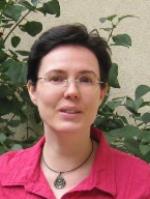
Agnès Lenepveu-Hotz
Étude diachronique du système verbal persan (Xe-XVIe siècles): d’un équilibre à l’autre (EPHE Paris 2012
The dissertation of Agnès Lenepveu-Hotz on Étude diachronique du système verbal persan (Xe-XVIe siècles): d’un équilibre à l’autre was carried out at the École Pratique des Hautes Etudes Paris under the supervision of Professor Philip Huyse and submitted in 2012. The work, which was published as a volume of the Collection linguistique de la Société de Linguistique de Paris (édition Peeters) in 2014, is a diachronic study of the Persian verbal system and traces its development from Middle to New Persian. Based on ten texts representative for the different chronological stages between the 10th and 16th century, the work provides a minute and philologically sound study of representative text material, including early Judeo-Persian. This precise, comprehensive and systematic analysis of certain well-known phenomena and forms is a great step forward towards a better understanding of the diachronic development of New Persian and will be an important and very useful reference work.
Agnès Lenepveu-Hotz is currently an associate postdoctoral fellow at the CNRS, Mondes Iranien et Indien (UMR 7528), Paris. After both undergraduate and graduate Classical Studies in Strasbourg, Agnès Lenepveu-Hotz studied New Persian at the INaLCO (2003-2006) and the Université Sorbonne Nouvelle – Paris 3 (2006-2007). She defended her PhD thesis at the École Pratique des Hautes Études in 2012. Her research interests include the evolution of New Persian, from the 8th centuries to present-day. She has published articles about the verbal system, and also about the evolution of object markers and phonological evolutions. Her work has involved the study of Early Judeo-Persian texts.
***
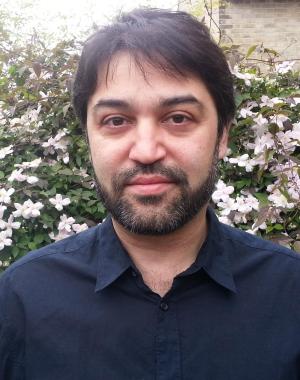
Arash Zeini
The Pahlavi Version of the Yasna Haptaŋhāiti (SOAS London 2014)
The work of the second prize winner, Arash Zeini, is a dissertation on The Pahlavi Version of the Yasna Haptaŋhāiti, for which he was awarded a PhD in 2014 at SOAS. In this excellent work on a very complicated Sasanian religious text, the author displays masterful knowledge of Book Pahlavi and other relevant languages, and has produced a very careful and thorough critical text edition with an extensive commentary. The work also includes important studies of Zoroastrian exegetical literature and scholastics, and of fire worship in Gathas, displaying profound knowledge of modern theoretical literature. Zeini sees the PYH as a text in its own right, and substantiates this view with considerable implications for the study of Zoroastrianism in particular and religion in general.
Arash Zeini is an associate fellow at the Institute of Iranian Studies, University of St Andrews. His main research interests include the study of ancient Iran, Zoroastrianism, particularly the late antique exegesis of the Avesta, and digital humanities. Arash obtained his PhD in Study of Religions at the School of Oriental and African Studies (SOAS), University of London. His dissertation contains at its core an edition of the Middle Persian translation, or the zand, of the Yasna Haptaŋhāiti, a liturgical text composed in the Old Iranian language of Avestan. Arash also holds an MA from SOAS and an MBA in International Consulting from Kempten University of Applied Sciences, Germany. In September 2013, he took up a research fellowship at the School of History, University of St Andrews, where he worked on notions of Iranian Kingship in pre-Islamic Iran.
Award Winner 2011
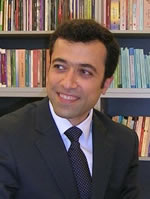
Amr Taher Ahmed
La “Révolution littéraire”. Étude de l’influence de la poésie française sur la modernisation des formes poétiques persanes au début du XXe siècle [The “Literary Revolution”. A Study of the Influence of French Poetry on the Modernization of Persian Poetic Forms in the Early 20th Century], Vienna: Verlag der Österreichischen Akademie der Wissenschaften, 2012.
Amr Taher Ahmed is a specialist of modern Persian and Kurdish poetry and metrics working at the Institute of Iranian Studies, Austrian Academy of Sciences, Vienna.
After studying Kurdish literature at the University of Duhok (Iraqi Kurdistan), where he worked as a teaching and research assistant, he was awarded a doctoral fellowship by the French Ministry of Foreign Affairs. He moved to France in 2002 to complete his curriculum in Iranian Studies and Comparative Literature. Amr Ahmed received his PhD (Dr. phil.) in Comparative Literature at the Sorbonne Nouvelle, Paris, in 2009.
Amr Ahmed has published a monograph, Nîma Yušij u Ebdollah Goran, niwêkirdinewe u dabiran [Nimâ Yušij and Abdollah Goran: Renewal and Breakthrough] (in Sorani), Duhok: Spîrêz, 2006. Other publications include “Le statut de la métrique populaire dans la poétique de Nima Yušij”, Studia Iranica 36/2, 2007: 251-277 and, in collaboration with Bruno Paoli, “Métrique des premiers vers persans”, Bulletin d’Études Orientales 59, 2010: 127-140.
His fields of research include the history of modern Persian and Kurdish literatures, quantitative and syllabic-accentual metrics, free verse, poetic forms and literary influences. He was appointed researcher at the Institute of Iranian Studies, Vienna, in March 2010.
Award Winners 2007
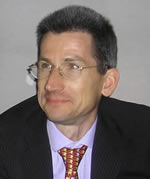
Markus Ritter
Moscheen und Madrasabauten in Iran 1785-1848: Architektur zwischen Rückgriff und Neuerung [Mosques and Madrases in Iran 1785-1848: architecture between readaptation and innovation]. Brill: Leiden, Boston [2005] 2006. Islamic History and Civilization: Studies and Texts; Band 62 (German, English Summary)
Markus Ritter is full professor for History of Islamic Art at the Institute of Art History, University of Vienna, since 2012. Before that he had worked as a researcher at the Institute of Iranian Studies, Austrian Academy of Sciences. He has taught at different Universities in Germany, Austria and Switzerland. He is co-founder and vicepresident of the Ernst Herzfeld Society for Studies in Islamic Art and Archaeology.
His research interests include the late medieval and early modern periods of Islamic art in Iran, in particular architecture and wall painting, and medieval Arab art in the Near East.
After studying at the University of Bamberg/Germany, the American University in Cairo/Egypt, and the State University of Tehran/Iran, Ritter received his PhD (Dr. phil.) in the discipline of Islamic Art History and Archaeology at Bamberg in 2003. Further disciplines included Iranian Studies, Islamic Studies, Turkology, Architectural History. He also holds an MA in Islamic Studies.
Ritter published the first scholarly monograph on Qajar architecture, Mosques and Madrases in Iran 1785-1848: architecture between readaptation and innovation (German, English Summary), Leiden: Brill 2005 (Islamic History and Civilization; 62). He is the main editor of the collective volume, Iran and Iranianate Cultures (Festschrift Bert G. Fragner), Wiesbaden: Reichert 2008 (Beiträge zur Iranistik; 27). A forthcoming book deals with the architectural decoration of the Arab palace Khirbat al-Minya at Lake Tiberias in Umayyad Palestine.
The book on Iranian architecture won the SIE-award in 2007; the manuscript of the thesis, on which it was based, the “First Prize of Annual Cultural Research” by the State President of the Islamic republic of Iran (Muhammad Khatami) in 2004.
***

Agnes Korn
Towards a Historical Grammar of Balochi Studies in Balochi Historical Phonology and Vocabulary [Beiträge zur Iranistik 26] Wiesbaden (Reichert) 2005.
Studium der Indogermanistik in Hamburg und Wien (Mag.a phil. 1996), 1995/96 Lektorin für Deutsch in Banská Bystrica (Slowakei), 1996-98 Mitarbeiterin an einem Wörterbuchprojekt in Graz, Promotionsstudium in Vergleichender Sprachwissenschaft in Frankfurt a. M. (Dr. phil. 2003), seit Mai 1998 wissenschaftliche Mitarbeiterin bzw. Assistentin am Institut für Vergleichende Sprachwissenschaft usw. in Frankfurt a. M. 2007 European Award of Iranian Studies der Societas Iranologica Europaea für die Doktorarbeit 2008 Award for Research Cooperation and High Excellence in Science der Minerva-Stiftung.